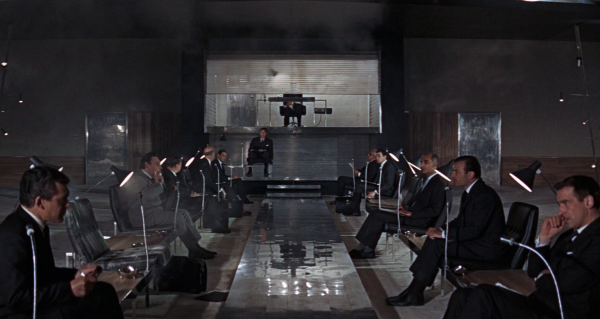If you search the blog for "Villains," then you might be amazed at how much comes up. In fact, see here.
Of course, we start with Poul Anderson's villains:
the succession of time criminals in the Time Patrol series (see here);
the differing motivations of Merau Varagan and Aycharaych;
characters like Edward Garver, the bureaucrat, and Benoni Strang, the revolutionary - Anderson shows us what it is like to be them.
Then we compare Anderson's villains with those of other authors:
Count Ignatieff;
William Walker;
Norman Arminger;
Blofeld;
Zala;
Max.
I mention all this because Dan Brown's The Lost Symbol definitely makes a distinguished new addition to this list: Mal'akh, who considers himself a masterpiece.

3 comments:
Kaor, Paul!
One thing I believe needing to be stressed is that Poul Anderson seldom created truly evil or vicious villains a la the wicked persons created by Stirling. More often than not, the "villains" in Anderson's works were decent people by their own and their people's standards. Sometimes they were simply less "right" than the people who defeated them and achieved a tragic nobility in defeat. Two examples being Yurussun Soth-Zora and Captain General Sidir, the civil and military viceroys of Arvanneth for the Rahidian Empire in THE WINTER OF THE WORLD.
Yes, I agree, Stirling created very bad, convincing, and SMART villains. Villains who did not make the astonishingly DUMB mistakes of, for example, the Nazis and Communists. Or pursue their idiotic, counterproductive policies. Such as the truly evil and ridiculous racist theories of the Nazis or the totally unworkable system of Marxist "econcomics" accompanied, as it had to be, by slave labor and the gulags.
Sean
Paul and Sean:
Related to Sean's assessment of Anderson's villains, I thought of Arturo Renzi from Andre Norton's *The Stars Are Ours!* ... although Renzi was actually a back-story character, assassinated years before the main story begins.
The prologue describes him as a narrow-minded and fanatical Luddite (that word isn't actually used), but with the magnetic personality of a Hitler. And after some high-tech installations had been turned into out-of-control weapons, with horrific loss of life, Luddism looked good to entirely too many people. In the course of the book, though, one of those opposing the regime Renzi created nonetheless says that:
"Renzi wasn't a crook; he was basically a decent man. I heard his early speeches and I'm willing to agree that much he said was true. But he had no—well, 'charity' is the best word for it. He wanted to force his pattern for living on everyone else, for their own good, of course. Because he was great and sincere in his own way he gained a following of honest people."
The prologue had mentioned that Renzi's assassination came because, "fanatic and narrow as he was, his voiced policies were still too liberal for some of his supporters." Although naturally they blamed his death on the scientists they wanted to suppress and enslave. Reichstag fire, anyone?
Kaor, DAVID!
Andre Norton's ever so slightly "decent" Arturo Renzi reminds me of people like Ralph Nader or his later clones. Esp. if someone like Ralph managed to get into power. And Larry Niven, Jerry Pournell, and Michael Flynn gives us far too good a picture of what such a technology hating regime would look like (JUST as an Ice Age comes crashing down on us) in FALLEN ANGELS. Anderson's THE WINTER OF THE WORLD could easily be what we see thousands of years latter, assuming the eco freaks and Naderites were not defeated!
Sean
Post a Comment